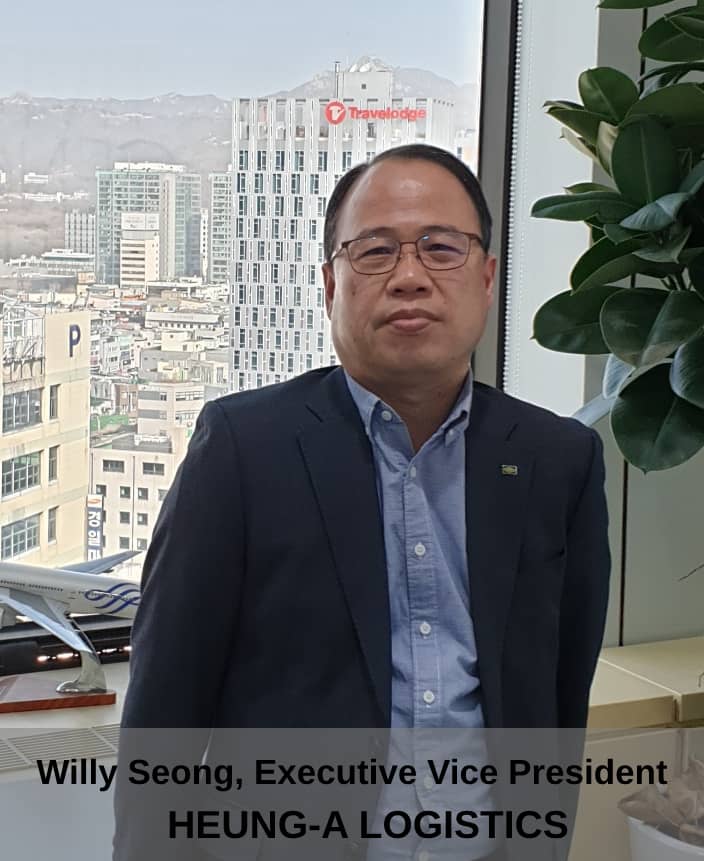“Military logistics is much more profitable compared to general cargoes, this is why more competitors are trying to enter into this market; in just South Korea there are more than 4,000 forwarders.”This week we had a conversation with Mr. Willy Seong, the Executive Vice President of Heung -A Logistics, Globalia member in Seoul, South Korea. In this interview he talks about how they got into military logistics services, the challenges they face with these kinds of projects and more. Q. Can you tell us a little about the history of Heung-A Logistics and Co? Q. When and how did you get into the freight forwarding industry? |
|
Q. What distinguishes Heung-A Logistics from other freight forwarders in your city?
A. First and foremost, we have many portfolios that are different from other forwarders in Seoul. We are one of the top service providers when it comes to ocean LCL consolidation between Korea and Japan. Furthermore, we have also specialized in certain items like pharmaceuticals, DG shipments, and several other strategic shipments both in air & ocean freight.
Q. What are the main challenges facing freight forwarders in your country at the moment?
A. The main challenge in South Korea is how to survive in the market as around 4,000 forwarders are competing there. The key to this problem is to focus on personalized customer-oriented solutions and make use of all the available software for enhancing our efficiency.
| Q. How is Heung-A Logistics dealing with these challenges on a daily basis? A. We have certain specialized operations and as I just said, offering customized and value-added services are the best way to survive in the market. Q. What would be the most significant shipment your team has handled? |
|
Q. What were the challenges with this shipment and how did your team overcome them?
A. While handling these kinds of goods, one needs a lot of patience as several documents & approvals are required from the government and working on them and obtaining them can be a time-consuming process. Moreover, we also need to figure out the transit points & communicate with the authorities at the destination for the smooth transfer of the shipment to the consignee’s site. Other than that, it is also difficult to get a reimbursement from the insurance companies when there is some untoward incident like theft or destruction of the military equipment.
Military logistics is much more profitable compared to general goods, this is why more competitors are trying to enter into this market and making a lower profit margin than before. This has indeed added to the challenges.
Q. Where do you see your company in 10 years?
A. Probably, a very capable junior will eventually lead my team, set a higher target, work towards achieving it and eventually make our company the number one freight forwarder not just in Seoul but in the entire country!


